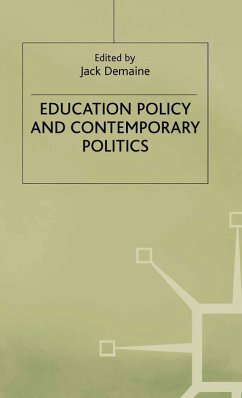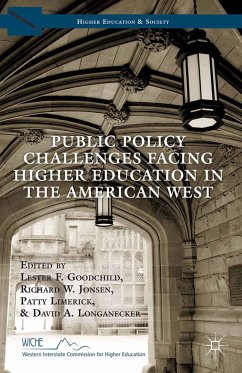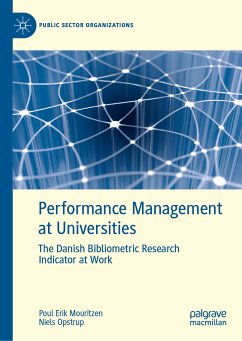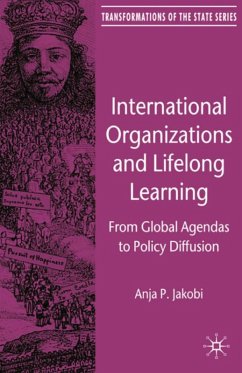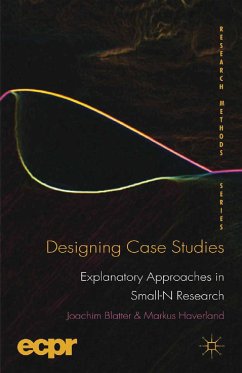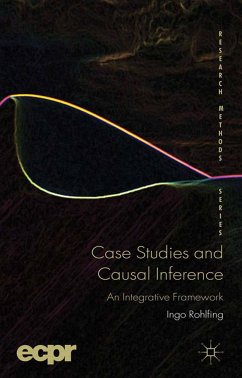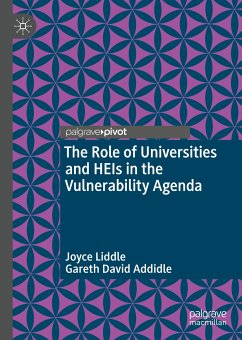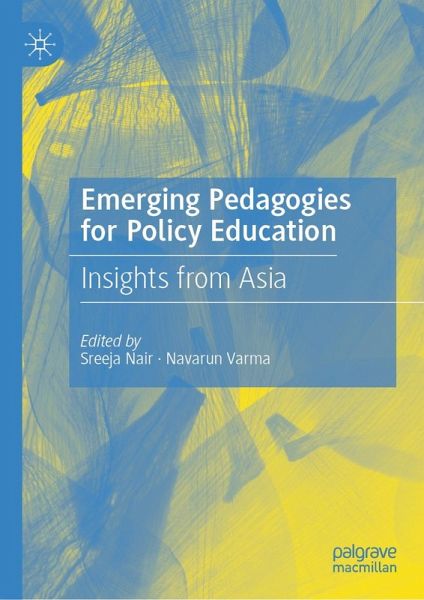
Emerging Pedagogies for Policy Education (eBook, PDF)
Insights from Asia
Redaktion: Nair, Sreeja; Varma, Navarun
Versandkostenfrei!
Sofort per Download lieferbar
104,95 €
inkl. MwSt.
Weitere Ausgaben:

PAYBACK Punkte
52 °P sammeln!
This book has been selected for the 2024 NASPAA (Network of Schools of Public Policy, Affairs, and Administration) Outstanding Scholarship of Teaching and Learning Book Award.This edited book captures key trends that are driving changes in policy education and presents a repertoire of pedagogies to prepare educators and policy programme designers to teach for better impact in learning and policy practice. Supported with observations from selected Asian universities the chapters cover the experiences of authors in working with students at undergraduate and postgraduate levels, as well as profes...
This book has been selected for the 2024 NASPAA (Network of Schools of Public Policy, Affairs, and Administration) Outstanding Scholarship of Teaching and Learning Book Award.
This edited book captures key trends that are driving changes in policy education and presents a repertoire of pedagogies to prepare educators and policy programme designers to teach for better impact in learning and policy practice. Supported with observations from selected Asian universities the chapters cover the experiences of authors in working with students at undergraduate and postgraduate levels, as well as professional programmes such as executive education, training, and capacity building for mid-career professionals and practitioners. Part I of this book presents ideas that are asserting the need for incorporation of new content as well as teaching practices for policy education. Part II covers selected cases of application of pedagogical approaches and strategies in Asian universities, tested at different education levels, modes of teaching, and disciplines.
This edited book captures key trends that are driving changes in policy education and presents a repertoire of pedagogies to prepare educators and policy programme designers to teach for better impact in learning and policy practice. Supported with observations from selected Asian universities the chapters cover the experiences of authors in working with students at undergraduate and postgraduate levels, as well as professional programmes such as executive education, training, and capacity building for mid-career professionals and practitioners. Part I of this book presents ideas that are asserting the need for incorporation of new content as well as teaching practices for policy education. Part II covers selected cases of application of pedagogical approaches and strategies in Asian universities, tested at different education levels, modes of teaching, and disciplines.
Dieser Download kann aus rechtlichen Gründen nur mit Rechnungsadresse in A, B, BG, CY, CZ, D, DK, EW, E, FIN, F, GR, HR, H, IRL, I, LT, L, LR, M, NL, PL, P, R, S, SLO, SK ausgeliefert werden.



